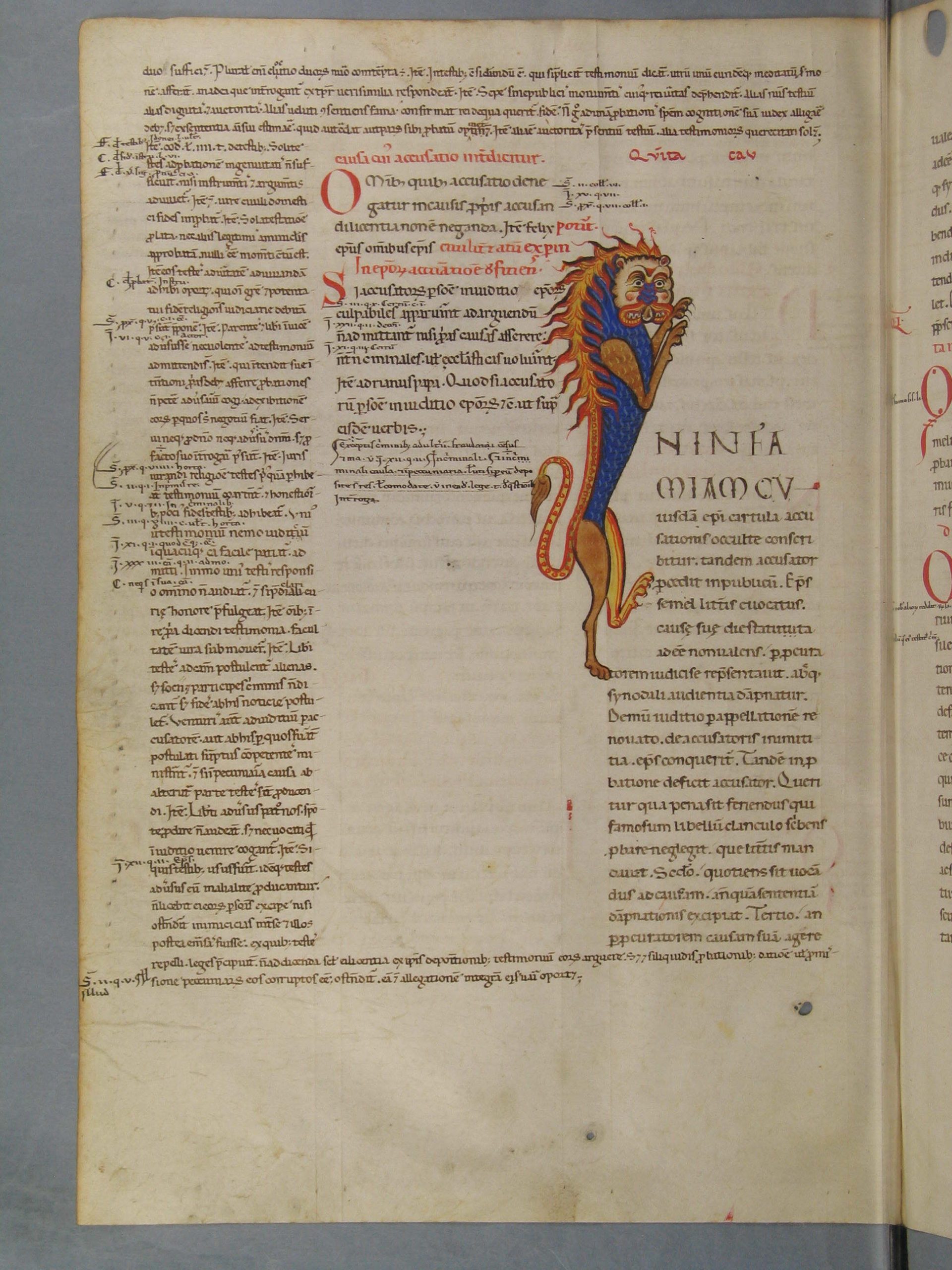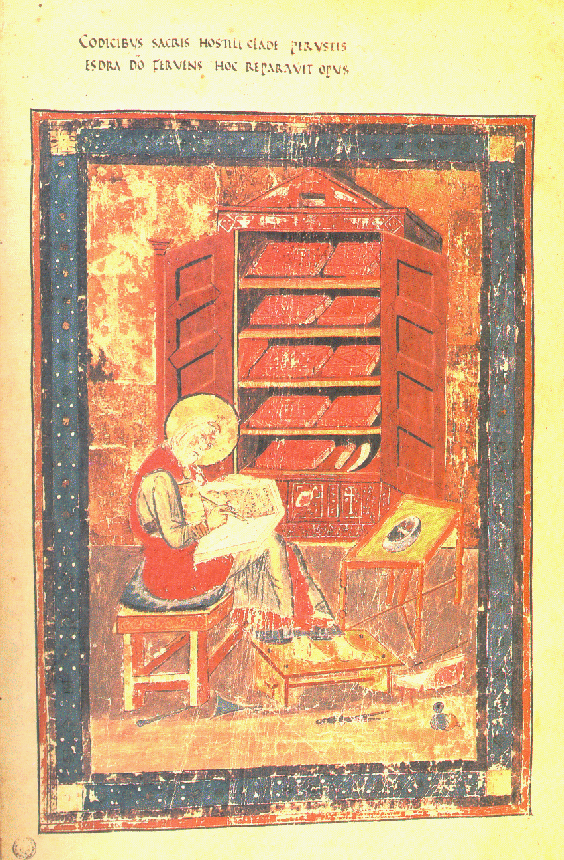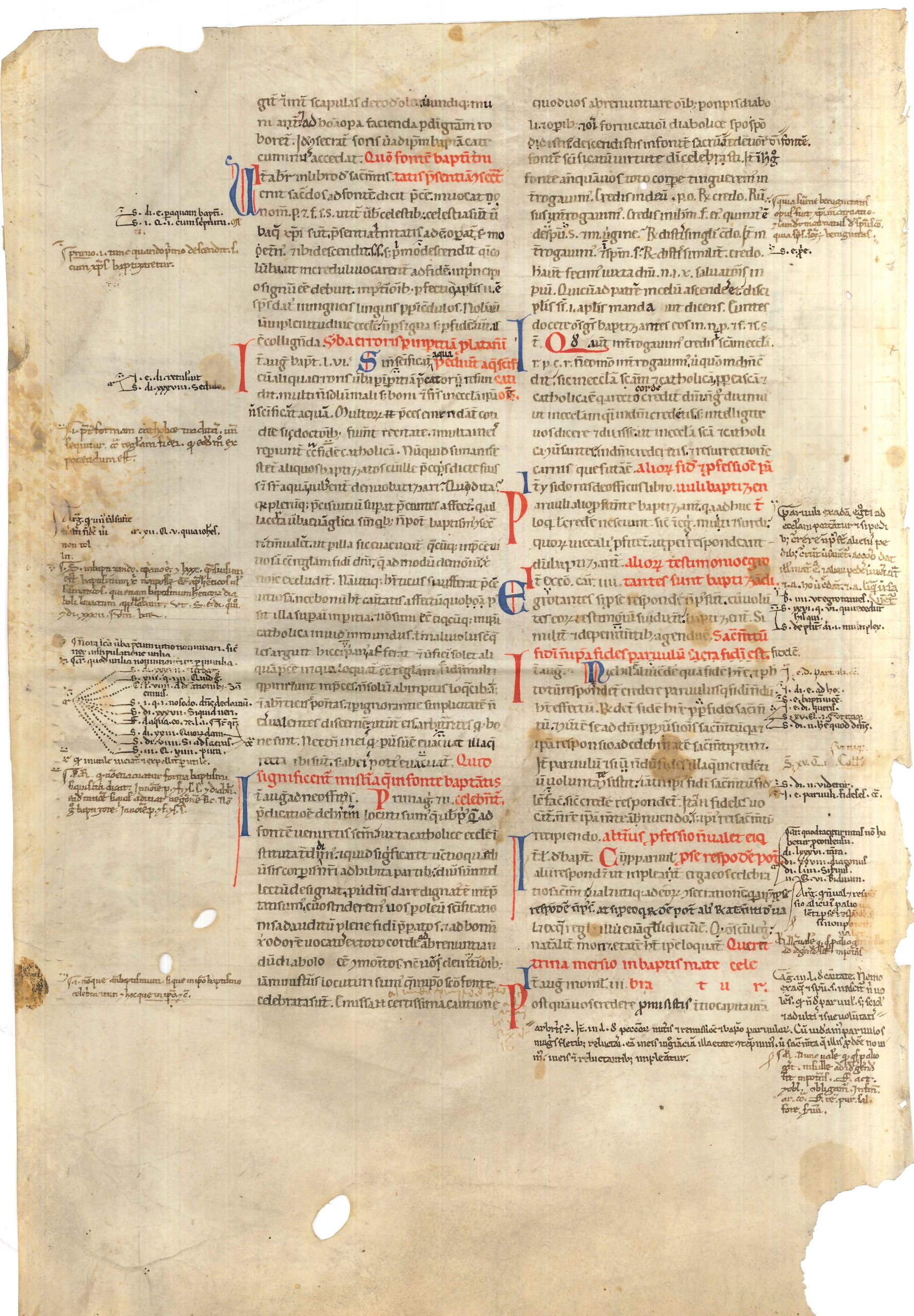Gratian and the Decretum
Gratian was a teacher of canon law in Bologna around 1140. He compiled his own textbook which he called Concordia discordantium canonum ("Harmony from Discordant Canons"). The work became know as the Decretum for short, thus signaling his intention to reconcile systematically contradictory statements of ecclesiastical law.
The Decretum was produced in a two-stage process, with Gratian himself finishing a first recension at some point probably soon after 1139, before being made Bishop of Chiusi in Tuscany, where he appears to have died on 10 August, c. 1145. This first recension contained 1860 canons which Gratian discussed in almost 1000 discursive comments (“dicta”) of varying length. He began by discussing the characteristics of law and then clerical office and life in a long treatise as yet without subdivisions. He divided the rest of the Decretum into 36 causae (“cases”), each of which describes an imagined situation from which Gratian derived and discussed up to eleven legal questions. The first causa is devoted to simony, the sin of selling ecclesiastical office. Causae 2-8 concern legal procedure, while later causae treat ecclesiastical property and tithes, monastic law, oaths, just war, and heresy. The last quarter of his work, causae 27-36 makes up a substantial treatise on marriage law, into which Gratian inserted, as causa 33, quaestio 3, a long and innovative treatise on penance.
This website publishes materials produced in connection with the work to produce new editions and translations of Gratian's Decretum, including our draft edition of the first recension.
Available texts
Below are links to some of the working files of the project. Caveat lector! The files are incomplete and erroneous. They simply reflect the state of the work on the date indicated at the bottom of the page.




Census of Gratian manuscripts
A preliminary list of manuscripts of Gratian's Decretum known to me. https://gratian.org/Manuscripts%20of%20Gratians%20Decretum.doc
Lorem ipsum siame conseur dpscing nimeas dsnsrus ullamcoe conseua rephenr velitesse cillum in fuginulla prature cupidas prodent suntincua officas deserunt animes perscatie lremque laudntium was uperiam ipsuae inventore veritas.